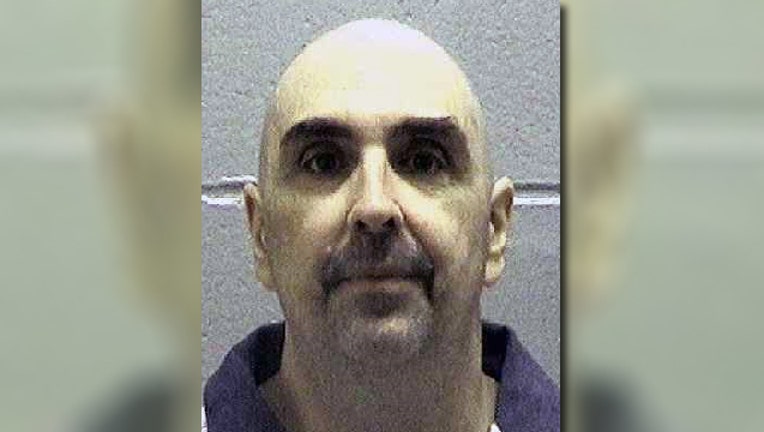Lawyer: Mental illness has kept man from fighting execution

ATLANTA (AP) — A Georgia man scheduled for execution this week hasn't pursued available legal options to fight the punishment because he's mentally ill, and a court should set a hearing to consider problems during his trial and sentencing, a lawyer argued in a court filing Monday.
Steven Frederick Spears, 54, is scheduled to die Wednesday. He was convicted of murder in the August 2001 slaying of his ex-girlfriend, Sherri Holland, at her home in Dahlonega, about 65 miles northeast of Atlanta.
Spears' constitutional rights were violated during his trial, sentencing and appeal, but he has declined to initiate any post-conviction appeals and has refused to meet with or communicate with his lawyers since March 2015, attorney Brian Kammer wrote.
The filing was made on behalf of Gwen Thompson, Spears' ex-wife and mother of his child, as a "next friend" petition. That option is available to someone who has a significant relationship with a death-sentenced person who "declines to pursue available post-conviction legal remedies due to a mental disease or defect."
The petition cites a sworn statement from clinical psychologist Robert D. Shaffer, who wasn't able to personally interview or test Spears but who evaluated him by reviewing letters Spears had sent, statements from people who had previously evaluated Spears and court records.
"It is my opinion that at minimum Mr. Spears's capacity to make a rational choice regarding his legal options is questionable, and he should be directly evaluated by a mental health professional to ascertain competence," Shaffer wrote.
Spears' childhood was characterized by "abuse and neglect, rejection, social isolation, shame, guilt, and a sense of abandonment," Shaffer wrote. He also has an extensive family history of mental illness, including depression and bipolar disorder, and has exhibited symptoms of mental illness and frequently self-medicated with illegal drugs, Shaffer wrote.
A Georgia Supreme Court summary of the case says Spears killed Holland because he suspected she had been romantically involved with someone else. Spears came up with four separate plans for her death and ultimately killed her by choking her, wrapping tape around her mouth and face and putting a plastic bag over her head, the summary says.
Kammer wrote that Spears suffered ineffective assistance of counsel, prosecutorial misconduct, procedural errors by the court and denial of due process, the filing says.
Spears' first attorneys said Spears was uncooperative and likely suicidal and tried to get the court to appoint a guardian for Spears as an incapacitated adult. They said he was a danger to himself because of untreated mental illness. Spears fired his attorneys for questioning his mental state, the petition says.
Records of court proceedings and correspondence with his attorneys show that his position on his case and his desire to pursue legal options has fluctuated over the years, the petition says. During his trial and sentencing, he declined to allow his attorneys to present mitigating evidence that could have helped him.
He was alternately cooperative and combative with his attorneys. He also sometimes said he wished he'd taken an offered plea deal or wanted a new trial but other times said he wanted to get the process over with.
Kammer argues a judge should set a hearing, appoint an attorney to represent Spears and give that attorney adequate time and resources to become familiar with the case and carry out an investigation.
Attorneys for Spears have also asked the State Board of Pardons and Paroles to spare his life. The parole board, the only authority with the power to commute a death sentence in Georgia, has scheduled a clemency hearing for Tuesday.

